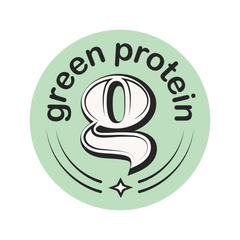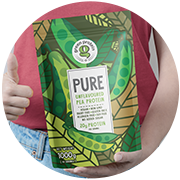
How to Choose the Best Protein Powder: Unlocking the Power of Protein
In the pursuit of optimal health and fitness, the significance of protein is fundamental. Serving as the building blocks for muscle, protein plays a critical role in both growth and recovery, pivotal in any fitness regime. With a plethora of dietary supplements available, the task of choosing the best protein powder becomes crucial for enhancing your fitness journey. This detailed guide is tailored to lead you through the intricate world of protein powders, with a focus on demystifying this vital supplement. It aims to ensure you select a product that perfectly matches your health objectives and lifestyle needs.
The essence of protein powder goes beyond just adding more protein to your diet. It's about identifying the type that best suits your body’s requirements. The best protein powder can accelerate muscle recovery, assist in weight management by promoting a feeling of fullness, and supply essential nutrients potentially missing from your daily diet. This guide delves into the nature of protein powder, covers a range of types available, and underscores the health benefits they offer, providing a comprehensive understanding to make an informed choice for your health and fitness needs.

What is Protein Powder?
Protein powder is a dietary supplement commonly used to increase protein intake. It is derived from various protein sources such as whey, casein, soy, pea, or rice. These powders are processed and concentrated forms of protein that can be easily added to shakes, smoothies, and meals. They are popular among athletes, bodybuilders, and those looking to improve muscle mass, lose weight, or enhance overall nutrition. The benefits of protein powder extend way beyond offering a convenient and efficient way to ensure adequate protein consumption, especially for those with increased protein requirements or limited access to protein-rich foods.
Types of Protein Powder
Understanding the different types of protein powders is crucial for making an informed choice that aligns with your health goals and dietary preferences. Each type offers unique benefits, and knowing these can help you select the most suitable option for your needs. Here's a detailed look at the various types of protein powders available:
- Whey Protein: Whey protein is renowned for its rapid absorption rate and high-quality amino acid profile, making it one of the most popular choices. Extracted during the cheese-making process, it’s a complete protein, meaning it contains all nine essential amino acids necessary for muscle repair and growth. Whey protein is particularly effective for post-workout recovery as it helps in quick muscle repair. It's available in various forms like concentrates, isolates, and hydrolysates, each differing in protein content and digestibility.
- Casein Protein: Derived from milk, like whey, casein protein is known for its slow digestion rate. This property makes it an excellent choice for prolonged protein release, providing a steady supply of amino acids over several hours. It's especially beneficial when taken before bed, as it can provide the body with a consistent protein source throughout the night, aiding in muscle repair and growth during sleep. Casein is also known for its high calcium content, which can be beneficial for bone health.
- Soy Protein: Soy protein is a complete plant-based protein source, making it a preferred choice for vegetarians and those who are lactose intolerant or allergic to dairy proteins. It's derived from soybeans and contains all the essential amino acids. Soy protein supports muscle building and repair and is also beneficial for heart health due to its potential to lower bad cholesterol levels. Additionally, it's a versatile protein that can easily be incorporated into various dishes.
- Pea Protein: Pea protein is extracted from yellow split peas and is another excellent plant-based protein option. It’s particularly rich in iron and arginine, an amino acid that can aid in muscle building and heart health. Pea protein is hypoallergenic, making it a suitable option for those with common allergies to dairy or soy. Its high fiber content also aids in digestion and may help in controlling appetite, thus supporting weight management efforts.
- Rice Protein: Rice protein, typically made from brown rice, is a plant-based option that's ideal for those with allergies or sensitivities to dairy or soy. While rice protein is not a complete protein on its own (it's low in lysine), it's often combined with other plant proteins to achieve a balanced amino acid profile. It’s easily digestible and can be a good protein source for individuals following a vegan diet. Rice protein supports muscle recovery and can be an integral part of a balanced diet.
What are the Benefits of Protein Powder for Your Health?
The question "Is protein powder good for health?" is one that many fitness enthusiasts and health-conscious individuals ponder. The answer lies in the multifaceted benefits of protein powder, which extend well beyond muscle building. Protein powder is a powerful tool not only for athletes but also for anyone looking to enhance their overall well-being.
Weight Management: One of the primary benefits of protein powder is its role in weight management. By promoting a feeling of fullness and enhancing metabolism, protein powders can be a valuable ally in weight loss efforts. This satiating effect helps in reducing overall calorie intake, making it easier to maintain a healthy weight.
Caters to higher protein needs: Additionally, protein powder is particularly beneficial for those who have increased protein needs, such as athletes, older adults, or individuals recovering from illness. It also serves as an essential supplement for people who struggle to meet their daily protein requirements through diet alone, such as vegetarians or vegans.
Maintains bones, skin, and hair: Regular consumption of protein powder not only supports muscle repair and growth but also plays a vital role in maintaining the health of bones, skin, and hair. Proteins are essential for the repair and regeneration of these tissues, making protein powder a valuable nutritional supplement.
For individuals questioning whether protein powder is good for health, these benefits highlight its efficacy as a dietary supplement. It's a versatile and convenient way to ensure adequate protein intake, which is crucial for overall health and well-being. Whether your goal is to build muscle, lose weight, or simply enhance your nutrition, protein powder can be an effective and beneficial addition to your diet.
Tips to Choose the Best Protein Powder for You
When selecting the best protein powder, it's important to consider several key factors to ensure that the product you choose aligns well with your individual health goals and dietary preferences:
Dietary Restrictions: It's crucial to select a protein powder that fits your dietary needs and lifestyle. For instance, if you're vegan or lactose intolerant, plant-based proteins like pea, rice, or soy protein are ideal. On the other hand, if you have no dietary restrictions, you might opt for whey or casein protein. Always check for potential allergens and ingredients that you might be sensitive to.
Protein Quality: The quality of protein is determined by its amino acid profile and digestibility. A high-quality protein powder will provide a complete profile of essential amino acids necessary for muscle repair and growth. Whey protein, for instance, is known for its comprehensive amino acid profile. If you're opting for plant-based proteins, look for those that combine different sources to ensure a complete amino acid profile.
Absorption Rate: Different types of protein powders are absorbed at different rates by the body. Fast-absorbing proteins like whey are ideal for post-workout recovery as they quickly provide amino acids to muscles. Slow-digesting proteins like casein are beneficial before bedtime, providing a steady amino acid release that aids muscle repair during sleep.
Taste and Mixability: The flavor and ease of mixing are important for regular consumption. A protein powder should not only taste good but also mix well with liquids without clumping. Consider trying samples or reading reviews to find a flavor and texture that appeals to you.
Price and Brand Reputation: Price is an important consideration, but it's also essential to balance it with quality. Research brands for their reputation, product reviews, and third-party testing to ensure you're getting a good value for your investment. Reputable brands are more likely to provide high-quality, safe products.
By carefully considering these factors, you can choose a protein powder that not only meets your nutritional needs but also fits seamlessly into your lifestyle and dietary preferences.
Conclusion
Selecting the right protein powder is a significant step towards achieving your health and fitness goals. By understanding the types of protein powder and their benefits, you can make an informed choice that suits your lifestyle and dietary preferences. We encourage you to explore our diverse range of high-quality protein powders. Each product is crafted to meet your nutritional needs, ensuring that your journey towards health is not just effective but also enjoyable and sustainable.
Frequently Asked Questions
When should I eat protein powder?
Protein powder can be consumed at various times - Post-workout is ideal for muscle recovery while having it with meals can boost overall protein intake. Before bed, a slow-digesting protein like casein helps in muscle repair during sleep.
Which protein is best for gym beginners?
Whey protein is often recommended due to its complete amino acid profile and fast absorption, making it great for post-workout recovery.
What Ingredients Should You Avoid In a Protein Powder?
Yes, it's safe to consume plant-based protein powder daily. It's a great way to supplement your protein intake, especially if you follow a vegan or vegetarian diet.
Is whey or plant protein better for weight loss?
Avoid protein powders with excessive sugars, artificial sweeteners, fillers, or unnecessary additives. Be cautious of allergens like gluten or dairy if you have sensitivities or dietary restrictions.
Can I drink protein shake without working out?
Yes, you can drink protein shakes even without working out. They can be used as a supplement to help meet daily protein requirements.









